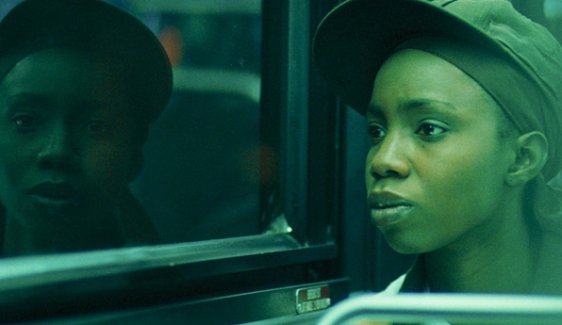In addition to Oduye’s Best Female Lead nomination, Pariah is also nominated for the Independent Spirit John Cassavetes Award. The film has received numerous other nominations and awards.
This piece, by Carrie Nelson, first appeared at Bitch Flicks on January 25, 2012.
 |
| Alike (Adepero Oduye) in Pariah |
I enjoyed many films in 2011. All of my favorite films of the year, however, were the ones that unnerved me with their honesty, sticking in my thoughts long after the end credits rolled. One of those films was Martha Marcy May Marlene, which I’ve already written about, and another was Pariah.
Pariah, in its simplest terms, is a lesbian coming-of-age story. Yet it is unlike any other lesbian coming-of-age story I have ever seen, largely because the film is not about a young woman’s initial discovery or self-acceptance of sexual identity. When we meet Alike (played masterfully by Adepero Oduye), she already is well aware of and comfortable with her sexual orientation. The film does not start from a place of Gay 101; there are no scenes where Alike expresses sexual confusion or the desire to be straight. It operates under the assumption that our heroine is out (at least to her friends and high school English teacher) and proud.
Instead of a traditional coming out story, Alike’s journey is about finding her place within her community. At home, her mother (Kim Wayans) encourages her to dress femininely and act ladylike. (One of the most heartbreaking scenes in the film involves Alike’s discomfort wearing a pink blouse that her mother was so excited for her to try on.) Outside of home, her friend Laura (Pernell Walker) teaches her how to convincingly present as butch and suavely seduce femmes. Alike is able to navigate both worlds, but she does not feel fully comfortable in either of them. The film follows her as she shatters the assumptions others make about her and determines what she needs to do to be truly happy.
